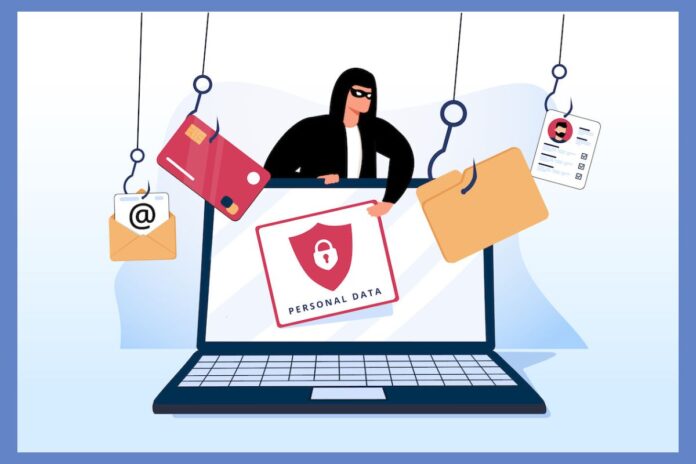Reaching a large audience online is cost-effective and time-saving. Crime in which the criminal uses one or more Internet components to deprive a person of property or any interest, estate, or right by creating a false pretence or concealing facts.
As more companies and customers use the Internet and other electronic communication to trade, so does criminal activities. Internet fraud is hard to identify and penalise, costing consumers and companies millions. From computer viruses to website hacking and financial fraud, online crime rose in the 1990s and early 2000s. This was less about developing pains than the Internet’s rising importance in daily life.
Financial stakes have increased due to more Web users, company dependence on E-Mail, and electronic commerce growth. Fake audio, video, and picture content are being created more often in scams using artificial intelligence (AI), making it harder to tell which information is genuine and which isn’t. Being alert according to CyberGhost is essential to avoiding falling for these tricks.
Cryptocurrency frauds to be aware of by 2024
When it comes to tricking you into falling into a trap or giving them your personal information, scammers are really inventive. Because of this, a lot of cryptocurrency scams include impersonation in addition to a variety of skillfully constructed falsehoods that are often customised depending on the victim they are trying to deceive. The following are the most prevalent kinds of cryptocurrency scams being carried out at the moment:
Extortion and blackmail Scams
The FTC warns that some con artists may exploit your embarrassing photos, videos, or personal information to lure you in. They usually threaten to reveal the information, but only if you agree will they guarantee its secrecy. Provide a bitcoin transfer immediately, and the problem will go away, they always ask.
The FTC recommends reporting extortion and blackmail to the FBI immediately. Avoid talking to the thief and don’t pay them.
“Business opportunity” frauds
This scam may take many different forms, but it usually starts when someone approaches you with a business opportunity and claims to be able to make you wealthy. Sometimes, con artists use the promise of amazing returns—they could even double or triple your cryptocurrency holdings over night—to trick you into forking over your cryptocurrency.
In any case, you should be aware that there are no “guaranteed returns,” and this is particularly true with regard to digital assets. Don’t respond if someone reaches you and claims they can quickly make you rich by doing magic with your cryptocurrency.
Scams using fraudulent job listings
In other cases, to entice more victims to their scam, fraudsters can fabricate job postings or make unsolicited employment offers. They often hire people for “jobs” in the cryptocurrency industry, such as mining cryptocurrency and finding new investors.
In any case, there is a single need for all of these jobs: in order to begin, cryptocurrency must be paid. From then, the hoax might take many different shapes. The con artist may try to persuade you to give them more money or they may deposit money into your bank account and then urge you to transfer it back since their first deposit failed.
Giveaway Scams
This kind of fraud offers you a reward—free money or something else entirely—if you comply with their requests. It may be difficult to tell what is genuine from fake, since fraudsters sometimes use celebrities or influencers as a way to trick unsuspecting victims into falling for their tricks.
For example, in an attempt to trick individuals into sending in digital assets, fraudsters targeting the cryptocurrency industry often pose as Elon Musk on social media and in videos. The first 1,000 new followers to join up for an Elon Musk “Freedom Giveaway” crypto fraud on Twitter were even guaranteed free cryptocurrency, but the whole scheme was a hoax.
Scams using impersonation
There are many more imitation frauds to be wary of, but the giveaway scam example we discussed above is only one example. To obtain some credibility, crypto thieves could pretend to be from the government or police enforcement, for instance. They will next try to persuade you that your assets or accounts are blocked as part of an inquiry and that you can settle the matter by paying them with cryptocurrency.
In attempt to persuade you of a different narrative, they may even claim to be representatives of major corporations such as FedEx, Microsoft, Amazon, or even your bank. Getting your cryptocurrency is the ultimate aim, however, regardless of the falsehoods they tell.
Investments Scams
An “investment manager” you have never heard of approaches you with an amazing investment opportunity, according to the FTC. Naturally, the first step of the procedure involves you depositing cryptocurrency to their online account or installing a wealth-boosting programme, and you have to do this quickly.
These con artists often have authentic-looking websites that make use of technical investment lingo to seem authentic. However, if you sign into your platform account, you could not be allowed to withdraw money or you might only be allowed to do so after paying a hefty charge.
Phishing Scams
Phishing scams involve someone impersonating another, usually a company, to get personal information. Many phishing scams send emails demanding your account login to steal your private crypto wallet keys.
The Verdict
Anyone requesting your bank or personal information is likely a scammer. Give no personal information to anybody who approaches you online. Online financial transactions should be made on a secure server and via a trusted site.





